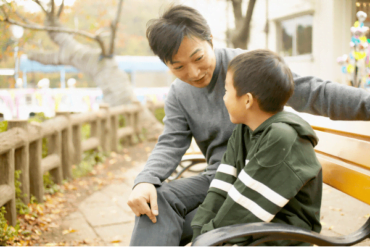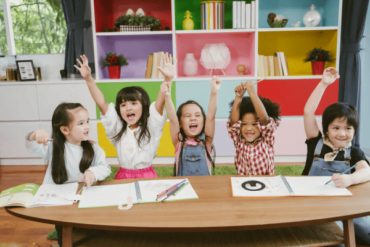DEVELOPMENTAL DELAY
ADDITIONAL INFORMATION
As a parent, it can be exciting and a little scary watching our kids grow up. We’re there for their first wobbly steps, all the way up until they master language. But, it can be overwhelming wondering if we’re on the right track – is my kid supposed to be walking by now? Talking? Toileting by themselves? Well, when a developmental marker is not reached within the expected timeframe, it could be a sign of a developmental delay.
It’s important to understand exactly what a developmental delay is, so that we can identify and intervene early. This is crucial to provide your child with the additional support they need to be empowered to their full potential.
In short, a developmental delay is when a child’s skills, in areas such as communication, physical development, or social-emotional development, fall behind what is expected for their age.
Types of Developmental Delays

Speech and Language Developmental Delays
It may be concerning if a child’s speech and language skills are lagging behind their expected milestones for their age. According to this article by KidsHealth, there are some early signs of speech and language developmental delays that parents should look out for:
- Not gesturing (e.g. pointing, waving goodbye) by 12 months
- Prefers gestures over vocalisations by 18 months
- Has trouble understanding simple verbal requests
It’s important to identify speech and language developmental delays early. This is because both are key components of verbal communication, which your child will need to use to express their needs and wants as they grow older.

Motor Skills Developmental Delays
Motor skills refer to our ability to move and control our bodies. Generally, motor skills can be defined by two categories. These are gross motor skills (movements involving large muscle groups, such as jumping or running) and fine motor skills (movements involving smaller muscle groups, like grasping and writing.)
Broadly speaking, there are some signs of motor skill developmental delays that we can pick up on really early:
Gross Motor Skills:
- Delayed rolling, crawling, or walking compared to expected milestones.
- Difficulty climbing stairs, maintaining balance, or throwing and catching a ball.
- Appearing clumsy or awkward in movements.
Fine Motor Skills:
- Difficulty grasping small objects or using utensils effectively.
- Challenges with tasks like buttoning clothing, tying shoelaces, or drawing.
- Poor eye-hand coordination.

Social-Emotional Developmental Delays
Your child’s social-emotional development is crucial because it’s the foundation upon which they build healthy relationships. Social-emotional skills help your kid to identify and regulate their emotions, as well as make and maintain friendships.
According to this article by The Warren Centre, some signs of early social-emotional developmental delays include:
- Lack of a social smile by first 3 months
- Lack of response to their name, their parents’ voice and their reflections by first 7 months
- Does not imitate gestures (e.g. waving) or sounds (e.g. Mummy! Daddy!) by first 12 months.
It’s true that every child develops at their own pace. The above are guidelines, not hard and fast rules that your little one is expected to follow. However, in the case of your child having a developmental delay, it’s essential to intervene early so you can better support them in their holistic growth.
ONE Intervention understands the unique needs of children with developmental delays. We have professionals who are able to patiently and expertly teach your child strategies to manage such delays. So, if you’re unsure whether or not your child requires additional support, contact us here today!
